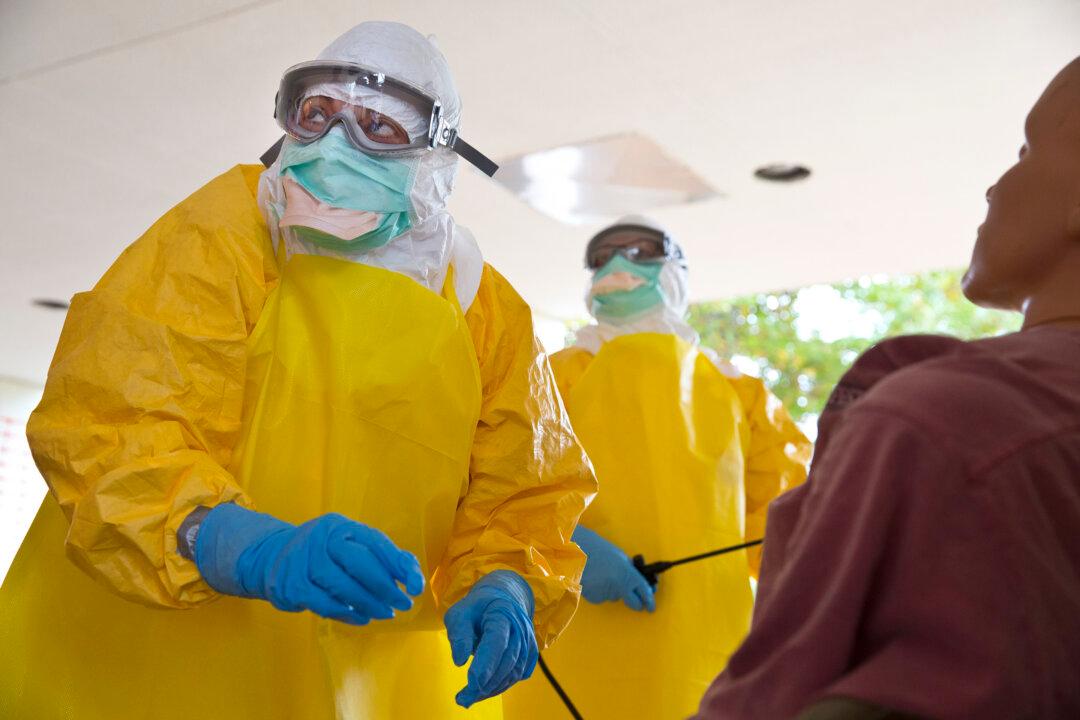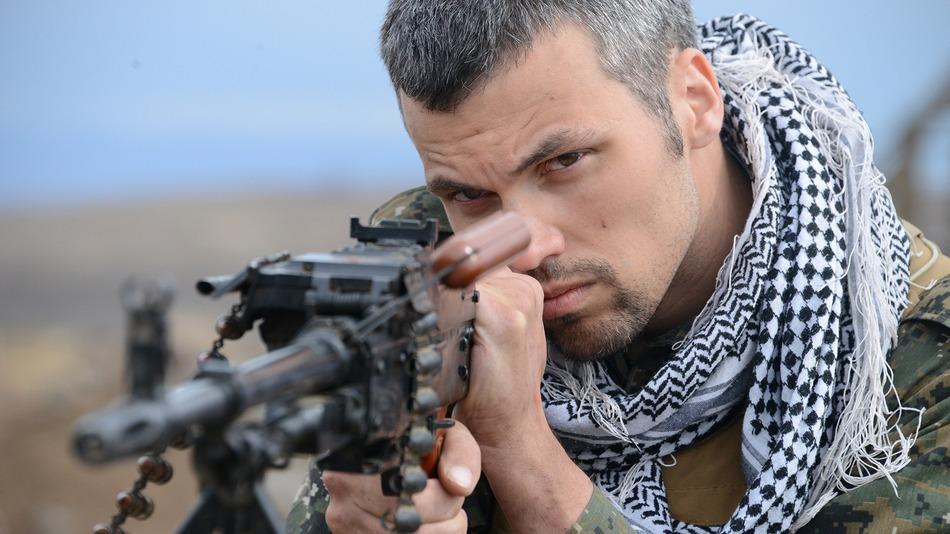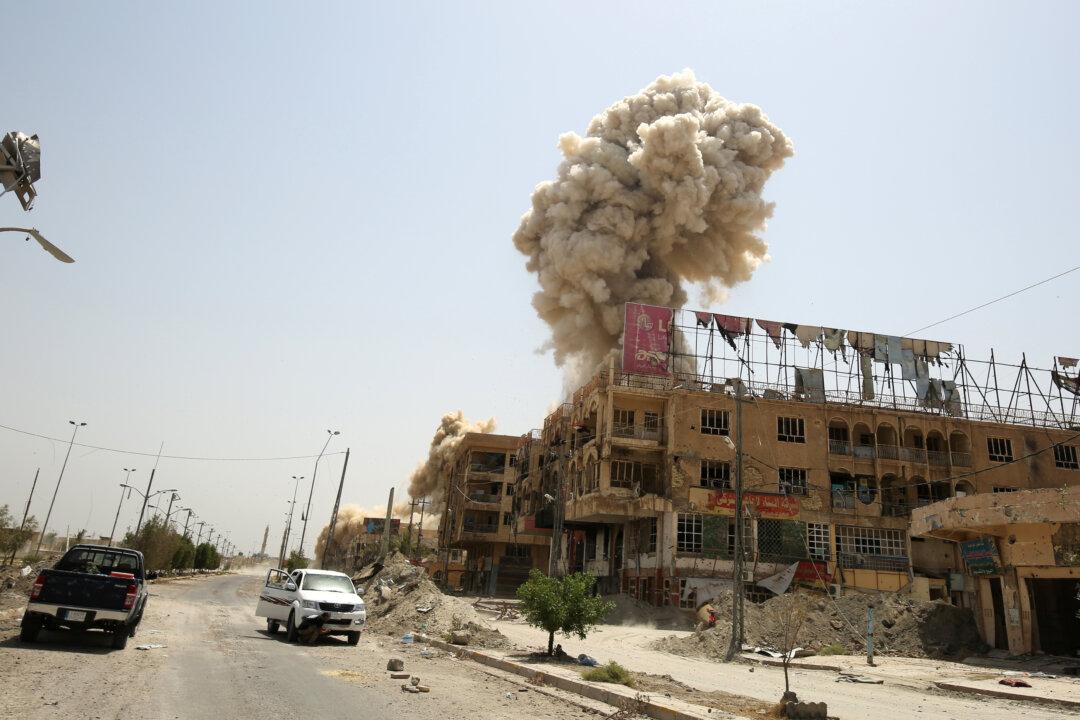The largest nurses’ union in the country has asked for presidential intervention after it was confirmed Wednesday that a second health care worker in Dallas had contracted Ebola while caring for deceased patient Thomas Eric Duncan.
“This month has been a nightmare for the nurses across the nation—we’ve been lied to in terms of the preparation of the hospitals,” said Deborah Burger, co-president of National Nurses United (NNU) during a conference call with 11,500 nurses and press on Wednesday.
Burger said that NNU has received a constant stream of phone calls from nurses around the country in the past weeks describing inadequate training and preparation, and lack of protective gear and isolation space for Ebola patients.
Outrageous
“What happened in Dallas could happen anywhere,” she said, and added that CDC criticisms over health care workers failing to follow protocols are unfair. “It’s outrageous that this is our responsibility.”
Claiming that health care workers and their concerns have been “essentially ignored by the White House and by the CDC,” Burger said the NNU has asked President Barack Obama to invoke his executive authority to stop what is quickly becoming a health care nightmare. The letter asks for mandated uniform national standards and protocols for the safety of patients, health care workers, and the public.
Burger said the order is necessary because hospitals are doing almost nothing to prepare, train, and equip their workers.
“I know everyone wants to blame the CDC—this goes far beyond the CDC,” she said. “This is a lack of funding ... this is a lack of political will.”
Amber Joy Vinson, the third Ebola patient in the United States and the second person to contract the virus here, had symptoms just a couple of days after her colleague Nina Pham was hospitalized with Ebola. Vinson was transported to Emory University Hospital in Atlanta on Wednesday for treatment.
Slammed by CDC
She and the hospital where she works, Texas Health Presbyterian, were slammed by the CDC over her travel on a commercial flight from Ohio to Texas the day before she was diagnosed and hospitalized.
The 50-plus health care workers who cared for Duncan were “self-monitoring,” however, and Vinson noted a slight temperature increase before she went to the hospital.
All 132 passengers who were on the Frontier Airlines flight from Ohio, which is still in service, are being contacted by the CDC.
“She should not have traveled on a commercial airline,” said CDC Director Tom Frieden during a media conference call on Wednesday. Frieden said that the other 50-plus health care workers who were in contact with Duncan will now have their travel restricted and will be more closely monitored.
Terse and Circumspect
Frieden, who was terse with staff and often circumspect about answering reporters’ questions during the briefing, also said that an on-site supervisor will be put in place at the Dallas hospital where Pham remains hospitalized.
Later on Wednesday, Obama canceled a planned fundraising trip to meet with high-level staff responsible for the country’s Ebola response. After the meeting, he told reporters that the situation in Dallas will be closely monitored, but the highest priority remains the situation beyond the borders of the United States.
“We are going to have to make sure that we do not lose sight of the international response,” he said, and added that ongoing work in Africa is “an investment in our own public health—it is not simply charity.”
But for the nurses’ union, the potential for more cases in the United States is urgent in order to keep the virus from spreading.
“The nurses feel unsupported, unprepared, and lied to,” said NNU’s Burger. Numerous health care workers from around the country echoed her sentiment during the call.
10 Minutes of Training
One nurse from El Paso, Texas, said that staff at her hospital were given 10 minutes of training, a flier with information, and an email directing them to the CDC’s website.
Other health care workers said they’re concerned about also being shut out of the political process to address holes in the system.
Donna Kelly Williams, a health care worker from Massachusetts, said that representatives from the state’s nursing association were denied their request to testify at a state Legislature hearing on Ebola on Thursday. They still plan to go and attempt to testify, though.
In New York City, one registered nurse said that aside from Bellevue, preparation at most area hospitals is inadequate, with nothing more than generic hospital gowns in place, and that there’s a general lack of preparedness to deal with Ebola.
At Providence Hospital in Washington, D.C., health care worker Donna Flamenco said that staff was only given brief training and generic protective gear. She also said that the room designated for Ebola patients is not properly equipped and is located next to the hospital’s front desk. Flamenco said there are no isolation units, and staff would have no way to decontaminate themselves if they were treating an Ebola patient.
“The nurses are afraid,” said Flamenco, who blamed the existence of multiple national corporate hospital chains for lack of a uniform standard. “It is just an accident waiting to happen.”
During the brief training they did have, Flamenco said nurses were told that the hospital cannot even afford protective goggles.
“It’s a mess—we need help,” Flamenco said.






